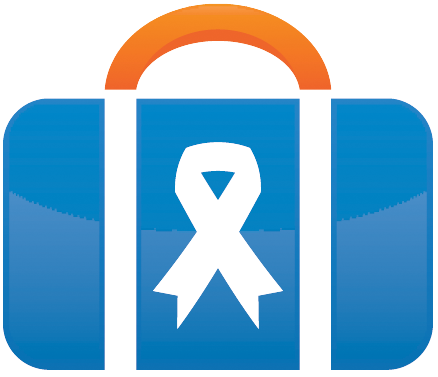Raffles are a great way to raise money for your nonprofit. Selling the chance of winning a big prize pulls people into your donor base who may not otherwise be able to afford auction items.
Due to raffles’ proximity to gambling, however, state governments enforce several raffle rules and regulations to prevent abuse.
While we don’t provide legal advice, we’ve summarized the most common considerations for running a legal raffle. Please consult a lawyer for your specific location and prize drawing.
Contents
Too Much Red Tape? Consider a Sweepstakes
Turn a raffle into a sweepstakes by allowing entrants to print and mail an entry form for a free chance to win. As with raffles, check if your municipality has any additional rules that govern sweepstakes, though you’ll generally find a less stringent regulatory environment.
To be certain, the vast majority of sweepstakes entries will be issued after someone makes a cash donation to your cause. Many charity sweepstakes won’t get a single mailed-in entry form because participants understand the purpose is to raise money for a good cause.
Although sweepstakes avoid many of the regulations that govern raffles, mind the following:
- The free method of entry must be presented to the purchaser at the point of sale. Many sweepstakes have exclusively online ticket sales to guarantee the free method is presented.
- Free entries must be given the same chance of winning as donation-based entries. So, award each free entry a number of tickets equal to the average number of tickets purchased by paying participants.
- Publish clear rules specifying methods of entry, the entry deadline, drawing date and other disclaimers pertaining to your sweepstakes.
Gaming License
To run a legal raffle, you will most likely need a gaming license. Your requirement for a license may depend on:
- Retail value of your prizes: Prizes with low retail value may require a less expensive license and relaxed reporting requirements.
- How you sell tickets: Online ticket sales may require a special license with your state, or may be totally disallowed.
- Gross proceeds: Raffles exceeding many thousands of dollars in ticket sales may require a special license, or may be totally disallowed.
- How many raffles you run each year: If you run just one or two raffles each year, check if your state offers a special limited license which has lower fees and less stringent reporting requirements.
Gaming License Eligibility
For most locales, you need to be a tax-exempt 501(c) organization. Additionally, many locales require that your nonprofit has been in existence for a minimum amount of time.
How to Apply for a Gaming License
In some states, you will be required to register with the state gaming commission, and then apply for a license with your municipality. In other states, you will apply directly with the municipality. Applications are fairly inexpensive (around $100), though tedious.
Subscribe to access the Benefit Auction Library
Find "How to" guides for auctions, golf outings & virtual galas, plus much more. We'll email your link once you subscribe.
Raffle Prizes
If you plan to issue a cash prize or real estate, double check that your state allows it. In California, for instance, 50/50 raffles are available only at major league sporting events.
Additionally, check your state’s regulations regarding paying for prizes if you can’t procure a fully donated item. Some states require that you generate enough proceeds in ticket sales to cover your costs.
On the flip side, some states, like Nebraska, require you award at least 65% of the gross proceeds as prizes when proceeds exceed $5,000. For example, if you raffle off a vacation with a fair market value of $6,500, you can sell only up to $10,000 in tickets.
Finally, always make sure you award your prize. This is a key difference between raffles and lotteries: raffles always have a winner and lotteries sometimes have a winner. This distinction may change how your fundraising is regulated.
To get your brainstorming started, check out our list of raffle prizes.
Rules Publication
For all raffles, it’s important to publish the rules to minimize the likelihood of a dispute.
Here is an example of terms and conditions for a 50/50 raffle performed at Atlanta Hawks games to benefit the Atlanta Hawks Foundation. You’ll see they cover:
- Eligibility (e.g., age, void where prohibited by law)
- How to enter
- Date and location of drawing
- Prize description (and remind participants of their potential tax liability)
- How the winner will be notified
- How the winner can claim the prize (Do they have to be present to win?)
- Any other conditions
Publish the rules online and have a copy of the rules available to your ticket sellers to give to purchasers. Your municipality may also have laws that require you to publish rules on any marketing materials.
Ticket Sales
Many raffle organizers are surprised to learn that the orange double roll of tickets with “TICKET” printed on one side and “KEEP THIS COUPON” printed on the other don’t meet many states’ requirements for raffle tickets.
For example, the New Jersey Legalized Games of Chance Control Commission requires you to furnish a sample ticket with minimum information before approving your license for off-premise raffles (participant need not be present to win). This ensures that the nonprofit is able to contact the winner if they are not present.
What to Include on Your Raffle Tickets
Some common ticket requirements are:
- Ticket number
- Organization name
- Gaming license number
- Date, time & location of the drawing
- Prizes and fair market values
- Ticket price (put the base ticket price, though you can still provide participants “volume discounts”)
- Purpose to which net proceeds will be devoted
- Certain legal statements, like “You need not be present to win”
Your organization should also keep a stub to perform the drawing and identify the winner(s). The stub should contain the name and contact information of the ticket holder, the ticket number, your organization’s name, and gaming license number.

Pro Tip: For raffles where participants may purchase dozens of tickets, furnishing this information on every ticket is impractical. Many nonprofits continue issuing the ubiquitous orange tickets and then furnish purchasers with a single card with the above information.
In-Person Sales
Selling tickets in-person is generally allowed, so long as you adhere to the following:
- Don’t sell tickets to minors or allow minors to sell tickets
- Give everyone the same price
- Don’t price your tickets above $100
- Don’t pay anyone to sell tickets
Remote Sales
Where many regulations come into play is when you sell tickets online, over the phone, or through the mail. These alternative selling channels are heavily regulated because it is difficult to prevent someone from out-of-state or a minor from purchasing a ticket.
Your ticket-selling website must have certain safeguards in place to prevent interstate sales. As of this writing, online raffles are prohibited in Alabama, California, Hawaii, Kansas, Utah, Washington, Iowa and Minnesota and Montana
One more note about online raffles. The federal Wire Wager Act prohibits regular online gambling and for online gambling to provide regular and essential income to an organization. Thus, avoid running an online raffle with regularity.
Venue & Drawing
If you are planning an “off premise” raffle (participant need not be present to win), check that your state allows it and if there are any special regulations. As mentioned above, New Jersey requires specific information to be included on the ticket when hosting an off premise raffle.
For “on premise” raffles, check your state’s regulations on eligible venues. For example, Georgia requires that the drawing takes place on premises owned by the nonprofit or leased by the nonprofit and regularly used for non-raffle activities, In other states, venues not owned or leased by the nonprofit may host a raffle with special permitting.
In all cases, make sure that your gaming license is displayed at the venue, and that someone at least 18 years old supervises the drawing.
Taxes & Reporting
Taxes can be complicated. We summarized the key points below, but the IRS publishes a great document with examples in Publication 3079: Tax Exempt Organizations and Gaming. We highly encourage you to check it out.
Reporting on the Winner
If the fair market value of the prize is at least 300 times the wager (i.e., ticket price) AND the fair market value, minus the wager, is over $600, then you must file Form W-2G with the IRS and give a copy to the winner.
When the person receiving the prize is not the actual winner or is a member of a group of two or more people sharing the winning, have them fill out IRS Form 5754 and submit it to you. This form contains helpful information for you to fill out Form W-2G.
Withholding Tax
In addition to the above requirements, if the fair market value of the prize, minus the wager, exceeds $5,000, then you must withhold income tax at a 24% rate (as of this writing) and report it on Form W-2G with the winner’s signature.
This is a straightforward filing for cash prizes, but must also be done for non-cash prizes, like a car.
If it is a non-cash prize, the winner pays the organization the necessary tax. For this reason, it is very common for winners of non-cash prizes to reject the prize due to the tax burden. Some nonprofits offer to pay the tax burden or provide a “cash-only option” so the winner is rewarded.
At year end, report the total amount of federal income tax withheld during the year on Form 945: Annual Return of Withheld Federal Income Tax. This will include all the taxes reported across all the Forms W-2G filed for the year.
Unrelated Business Taxable Income (UBTI)
Unrelated Business Taxable Income, or UBTI, is income earned by 501(c)(3) organizations that is not substantially related to the charitable, educational, or other purpose that is the basis of the organization’s exemption. Hence, UBTI is taxable.
Unfortunately, income from raffles qualifies as UBTI and must be reported on IRS Form 990-T.
An exception to this rule is made for organizations where substantially all the work is performed by a volunteer workforce – just make sure to record hours worked by compensated and volunteer workers! For complete IRS rules, see IRS Publication 598.
State Taxes
For each federal IRS form you submit, there is a corresponding state form to submit as well. Consult your local tax laws to determine your requirements.
Keep Your Records
Always keep your records for your raffle for at least three years. This is a best practice if not a legal requirement. At a minimum, records should contain:
- An itemized list of all gross receipts
- An itemized list of all expenses (other than raffle prizes)
- A list of the prizes awarded and the names of any persons who wins prizes
- The number of participants in the raffles
- Hours worked by compensated and volunteer workers
- Copies of any license applications and IRS forms
Consult Your Lawyer
We’ll take this time to remind you that we do not provide legal advice. We recommend you procure legal assistance with your raffle.
Gaming laws differ from state to state, and we obviously can’t cover every nuance here. Though it may raise the overhead of your event, a legal representative will minimize your exposure to legal risk.





